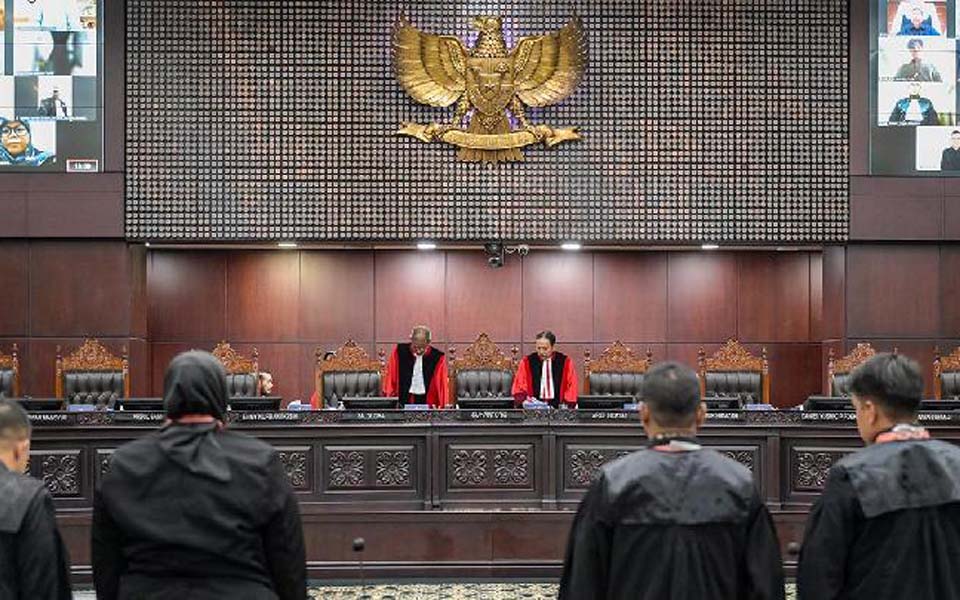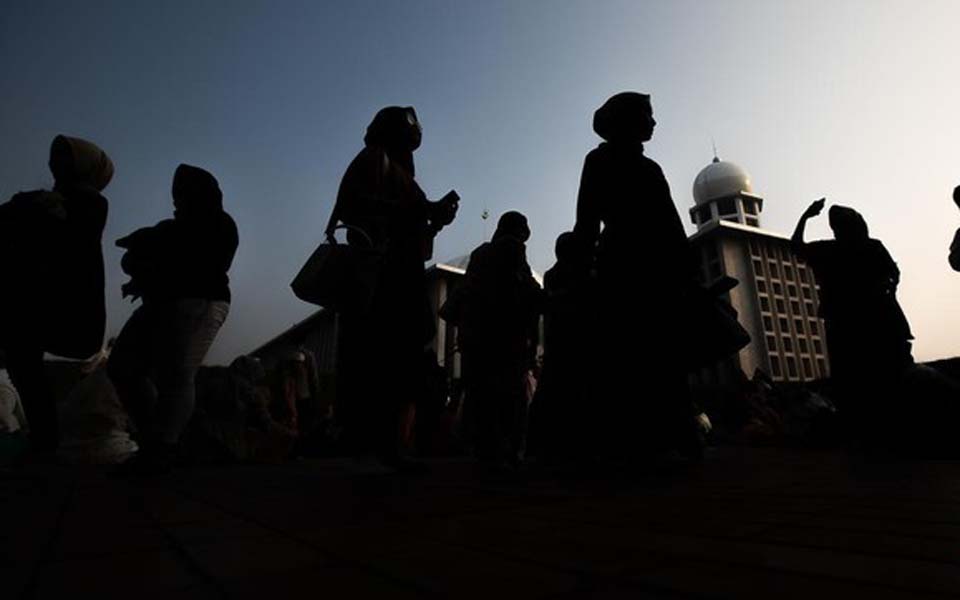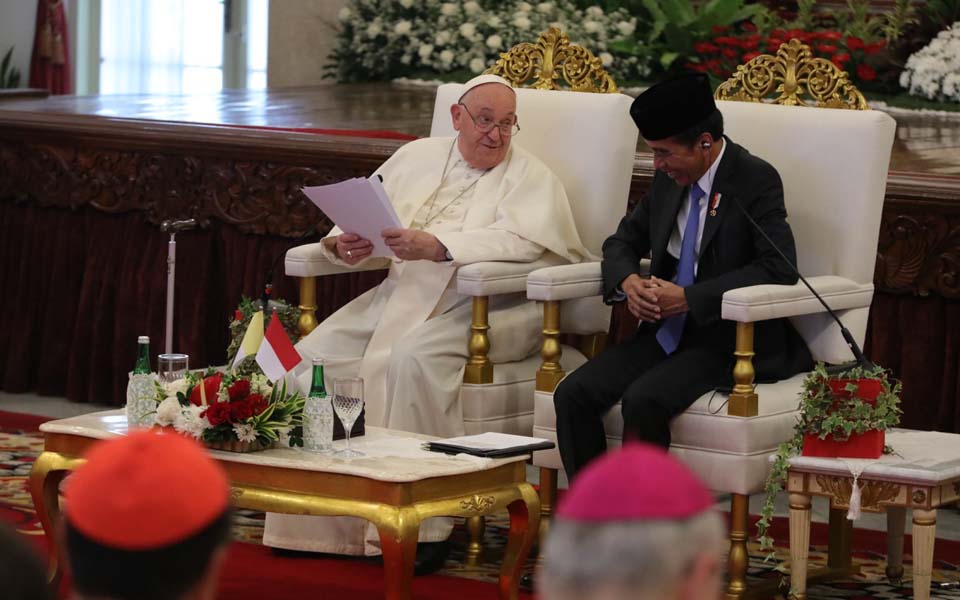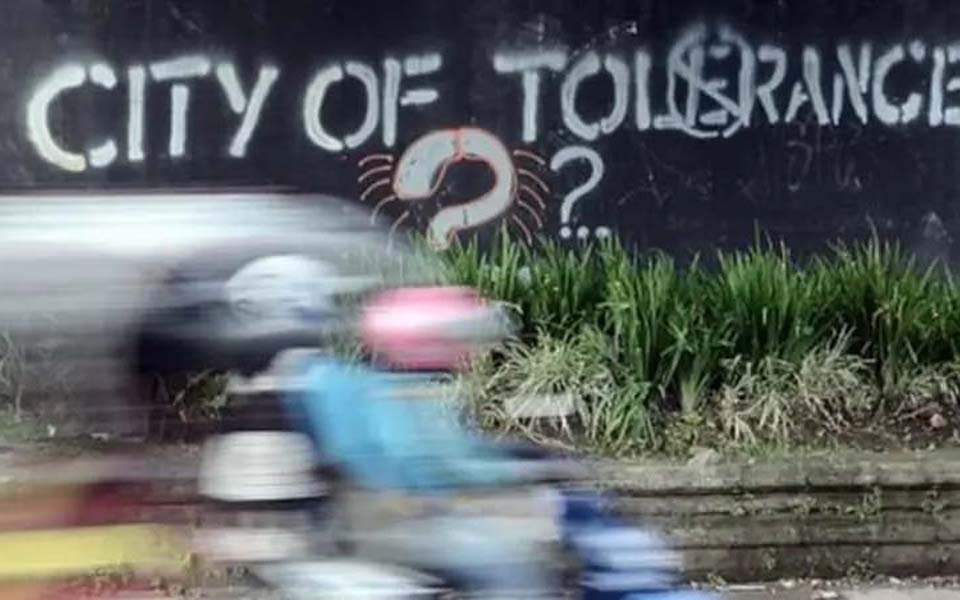Eka Yudha Saputra, Adelia Stevina, Jakarta – The National Police Criminal Investigations Directorate (Bareskrim Polri) for General Crimes has officially declared the founder of the Al Zaytun Islamic boarding school (pesantren) Panji Gumilang as a suspect on charges of blasphemy, hate speech and the dissemination of fake news.
This was announced by Bareskrim Polri General Crimes Director Brigadier General Djuhandhani on Tuesday evening, August 1. He stated that Gumilang was declared a suspect after they held a case presentation.
"After an examination was conducted, investigators held a case presentation, attended by investigators, the Propam [Professionalism and Security Affairs Division], the Irwasum [General Oversight Inspectorate], the Ditkum [Legal Division], the Wassidik [Criminal Investigation Supervisory Section], the results of the case presentation was that everyone stated their agreement to declare Mr PG a suspect", said Djuhandhani at the National Police Headquarters.
Gumilang was earlier questioned by the Bareskrim Polri General Crimes Directorate (Dittipidum) for around four hours. "The person concerned was questioned from 3 pm to 7 pm", said Djuhandhani. Djuhandhani added that after being declared a suspect, General Crimes Directorate investigators issued a warrant for Gumilang's arrest.
Gumilang has been indicted under Article 156a of the Criminal Code (KUHP), Article 45a Paragraph (2) in conjunction with Article 28 Paragraph (2) of Law Number 19/2016 on Information and Electronic Transaction (ITE Law), and or Article 14 Paragraph 1 of Law Number 1/1946 on Criminal Law Regulations.
The naming of Gumilang as a suspect for alleged blasphemy has attracted responses from a number of organisations who referred to the case as a form of criminalisation.
Criminalisation by the state
The Indonesian Legal Aid and Human Rights Association (PBHI) believes that naming Gumilang a suspect for blasphemy is a form of criminalisation by the state.
The PBHI said it regretted the use of the blasphemy articles against Gumilang because this does irreparable harm to religious freedom which is guaranteed by the Constitution. PBHI Chairperson Julius Ibrani said that the police should not have bowed down to majority pressure.
"What is clear is that declaring Panji Gumilang a suspect is criminalisation", Ibrani told Tempo on Wednesday August 2.
Politicisation
A similar view was conveyed by Gumilang's lawyer Hendra Effendy who said that the naming of his client as a suspect was a form of criminalisation and politicisation.
Effendy said that the process of naming his client as a suspect was very fast, starring from his initial questioning as a witness, then being declared a suspect, an arrest warrant being issued and then being detained.
"This was [all] done in one evening", said Effendy at the Bareskrim Polri headquarters on Wednesday.
Effendy suspected that there was criminalisation and politicisation of Gumilang's case right from the start, but he respects the move by the Bareskrim to follow up on the case seriously.
"We suspected this from the beginning and had already read the signs. We read them, earlier we said that in an evening he went from being a witness, to becoming a suspect, then was arrested, detained, and today he is still being processed", he said.
Freedom of religion and belief
Indonesian Human Rights Watch (Imparsial) meanwhile believes that declaring Gumilang a suspect clearly conflicts with the principle of freedom of religion and beliefs that is guaranteed by the principles of human rights in the Constitution.
Imparsial Director Gufron Mabruri says that the Bareskrim Polri appear to bowing down to pressure from mainstream Muslim groups, especially those in West Java.
"Imparsial believes that every citizen, including Panji Gumilang, has the right to choose, follow and declare their religious views in accordance with their beliefs", said Mabruri in a statement on Wednesday.
Mabruri emphasised that freedom of religion and belief are a fundamental right which is acknowledged and guaranteed by many international human rights instruments, including the Universal Declaration of Human Rights, as well as Article 28E Paragraph (1) of Indonesia's 1945 Constitution.
Imparsial is also reminding the government and law enforcement agencies to hold firm to the principles of the rule of law and respect human rights principles, including the right to freedom of opinion and expressing a view without being afraid of intimidation or arbitrary action.
"The government and law enforcement agencies should prioritise an approach of dialogue and the principle of tolerance between inclusive religions", he said.
Imparsial believes that the principle of freedom of religion and belief is the main foundation of Indonesia's kebhinekaan or diversity. Therefore, said Mabruri, this cannot be allowed to be violated and damaged through criminalisation as a consequence of submitting to the wishes of mainstream groups.
[Translated by James Balowski. The original title of the article was "Ramai-ramai Sebut Penetapan Tersangka Panji Gumilang Bentuk Kriminalisasi, Apa Alasannya?".]















